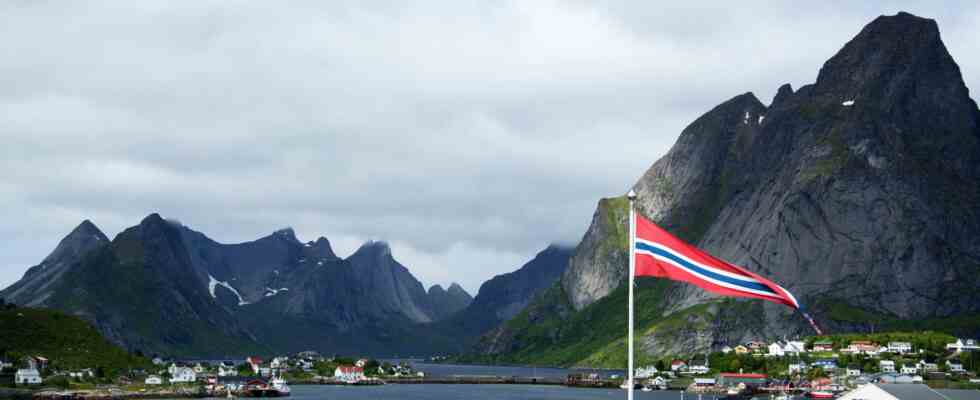Status: 10/28/2022 2:41 p.m
Norway finances its welfare benefits through a sovereign wealth fund that invests oil revenues primarily in stocks. In the course of the weakening economy, it has now suffered billions in losses.
The Norwegian sovereign wealth fund suffered a loss of around 44 billion euros in the third quarter due to global economic uncertainties. Because of the weakening stock markets as a result of fears of war, inflation and recession, the world’s largest sovereign wealth fund reported a loss of 449 billion crowns today.
Yield down 4.4 percent
The return on capital of the approximately 1.15 trillion euro fund was thus minus 4.4 percent from July to September – but it still cut by 0.14 percentage points above the return on its reference index. The return was negative for equities, fixed income securities and unlisted real estate, said the deputy chief of the fund operating company Norges Bank Investment Management, Trond Grande.
“The third quarter was characterized by rising interest rates, high inflation and the war in Europe. This also had an impact on the markets,” said Grande. The sovereign wealth fund invests the Norwegian government’s revenues from the oil and gas sector. He has interests in more than 9,300 companies worldwide, owning 1.3 percent of all listed shares.
In the past year, the fund had earned brilliantly. At that time, he made a profit of 1.58 trillion crowns (158 billion euros) and thus achieved a return of 14.5 percent.
Norway’s sovereign wealth fund the largest commodity-based in the world
Norway’s Government Pension Fund – Global is the world’s largest sovereign wealth fund, ahead of China Investment Corporation and Kuwait Investment Authority. There are numerous such funds around the world – between 98 and 150, depending on the interpretation. What can be understood by a sovereign wealth fund is not clear. On the one hand it is about the financing and on the other hand about the use of the money.
“In general, one can distinguish between commodity-based and non-commodity-based sovereign wealth funds,” explained Timm Bönke, Professor of Public Finance at Freie Universität Berlin, in an interview with tagesschau.de. The aim of commodity-based funds is to invest the income from raw material production outside the country in order to prevent too great an economic dependency and an increase in the price level. Ultimately, only the income from this investment flows back into the local economy.
The Norwegian pension fund also belongs to this category. The country launched the fund in the 1990s to protect the economy against fluctuations in oil prices and to finance extensive welfare state benefits. “The Norwegian sovereign wealth fund is a hybrid because it has a second important function: saving for future generations,” says Bönke.

